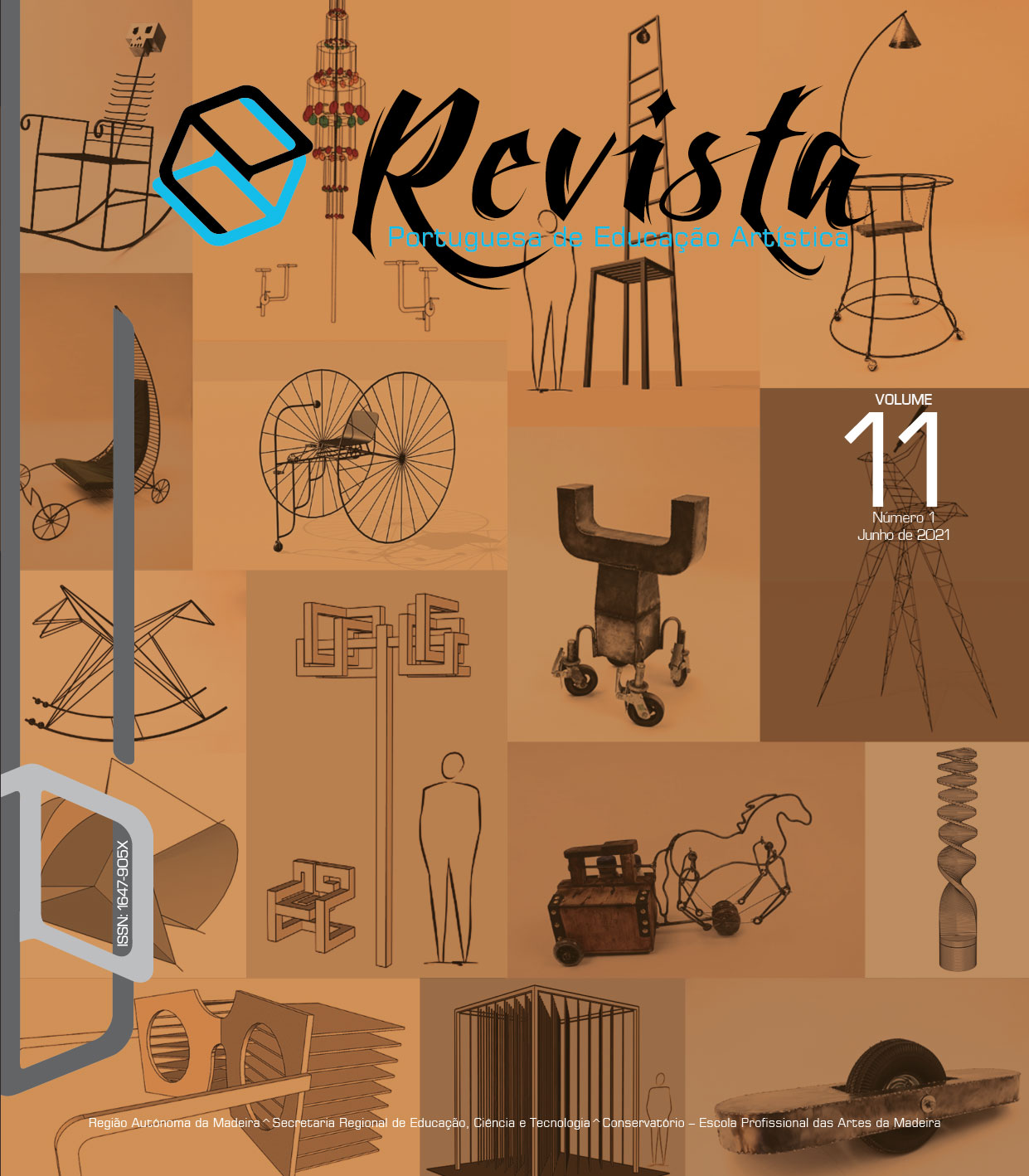The Teaching/Learning of Drawing (Currently) as a Contact Zone
DOI:
https://doi.org/10.34639/rpea.v11n1.177Keywords:
Zona de Contato; Inacabado; Poder; Projeto em DesenhoAbstract
This study starts from a provocation that invokes drawing as if it were a discipline that not all of us understand, it goes through six concepts that will serve as arguments to explore the concept of contact zone in the process of teaching/ learning drawing. Through contradiction, we introduce drawing in the academy as something that is stuffed between its general appreciation and a desire to stop depending on other artistic disciplines. Power introduces us to the contact zone as a place in which there are, from the onset, participants from different power relations aspiring to negotiation. Through the idea of unfinished drawing, we refer to the teacher who reflects on himself, while projecting into the future what he considers the perfect drawing. Change is already happening naturally at this time, introducing contemporary artists and educators such as Nicolas Páris and Gabo Camnitzer and an awareness that the contemporary art museum can contribute to the change that academic drawing seeks and needs. The teacher/student as a relationship seeks,
through arguments from the past and referring to examples from childhood, to reflect on the moments in which some determining processes attribute important meanings. Finally, drawing that uses project as an investigation on itself is the
solution that is proposed and promoted as an alternative path to the future of drawing. All this embedded with a degree of irony, and the possibility of failure implicit in this autobiographical trade, which becomes inevitable when thinking about
the processes we have gone through before, while growing up as a teacher.
Additional Files
Published
Issue
Section
License
Copyright (c) 2022 Portuguese Journal of Artistic Education

This work is licensed under a Creative Commons Attribution-NonCommercial 4.0 International License.

The work Revista Portuguesa de Educação Artística (Portuguese Journal of Artistic Education) is certified under Licence-Creative Commons Attribution-NonCommercial 4.0 International (CC BY-NC 4.0).




